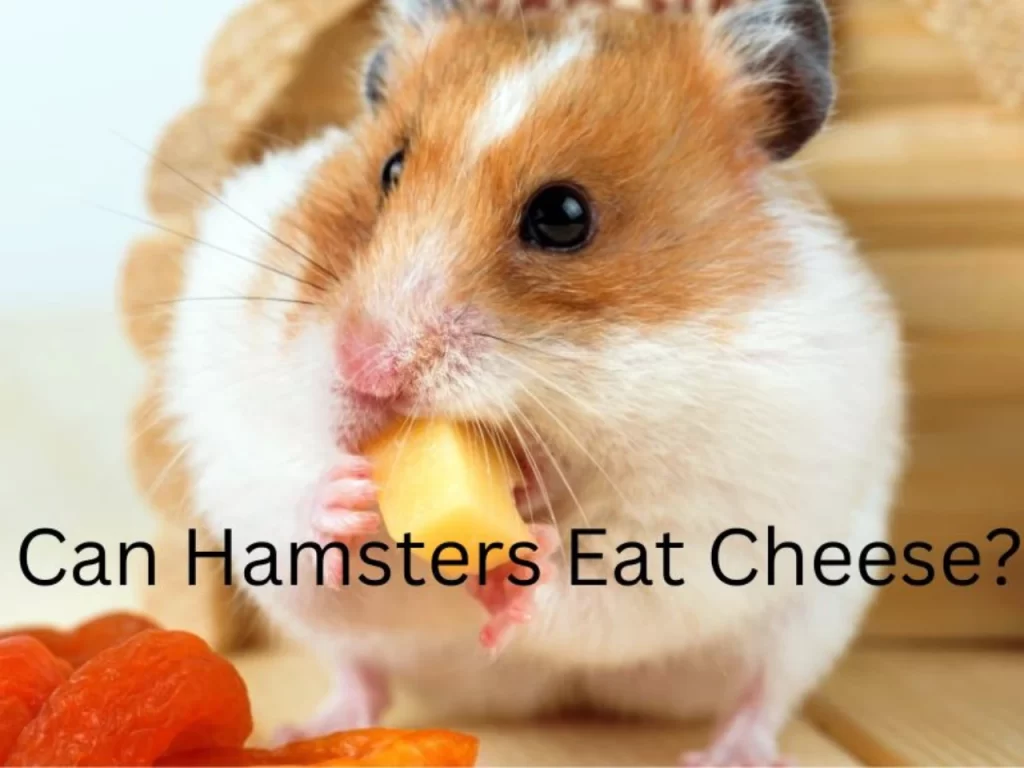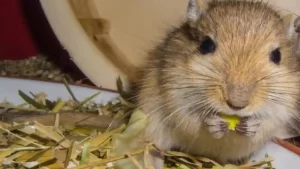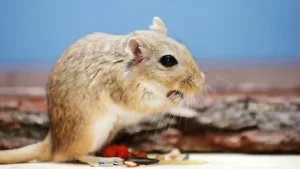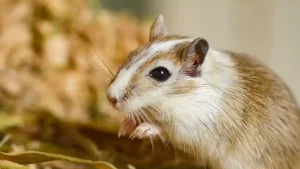The short answer is yes, hamsters can eat cheese. However, it should only be given as an occasional treat or reward and should never make up a large part of their diet. Cheese contains high levels of fat and sodium, both of which are bad for your hamster’s health in large quantities. In addition, feeding your hamster too much cheese can lead to weight gain and other serious medical issues.
Cheese should always be cut into small pieces so that your hamster does not choke on it. It’s also important to introduce new food items slowly to gauge how they react to them before giving them more. Because cheese is high in sodium, it is best to avoid giving cheese to very young or elderly hamsters.
Since cheese is not nutritionally complete, it should never be a substitute for their regular diet. Be sure to provide your hamster with plenty of hay, vegetables, and commercial food pellets as the main part of their daily nutrition. Treats such as cheese can be given in moderation but should never exceed 10-15% of the daily caloric intake.
Overall, hamsters can eat cheese; however, it’s important to do so in moderation and monitor how they react to it before giving them more. Cheese can make a tasty treat now and then but should never replace or overtake their regular diet. If you have any concerns about what to feed your hamster, consult your veterinarian for advice on the best nutrition plan for your pet.
Do hamsters eat cheese?
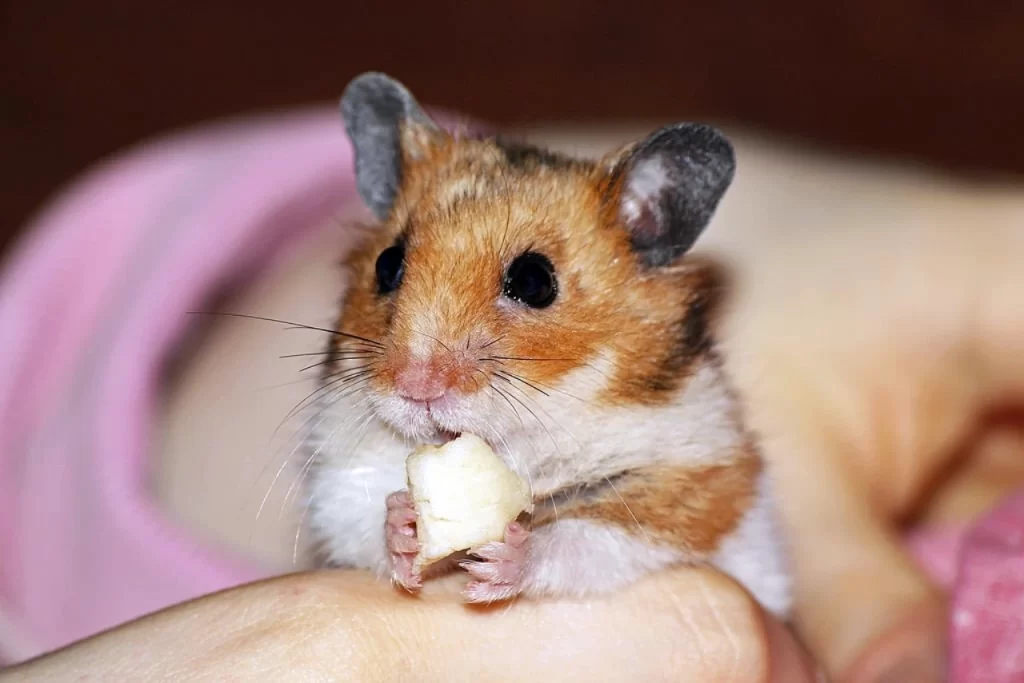
Yes, hamsters can eat cheese in small amounts as a treat. It is not recommended to feed it to them regularly.
However, cheese is high in fat and salt content, so it should only be given as an occasional snack. Hamsters also need a balanced diet that includes fresh fruits and vegetables, along with quality pellet food.
A small piece of cheese should not make up a large part of their diet, but it can be used as an occasional treat. To ensure your hamster stays healthy and happy, always provide them with the proper nutrition and care they need!
Fresh vegetables, such as broccoli and carrots, are a great source of nutrition for hamsters. As well as being low in fat and salt content, they also provide essential vitamins and minerals that help keep your pet healthy.
Cut the vegetables into small pieces so that your hamster can easily chew them. Make sure to always monitor your pet when he is eating to make sure that he does not choke on any of the pieces.
If you decide to feed your hamster cheese, look for low-fat varieties and cut them into small pieces before feeding. Always remove any uneaten or spoiled food from the cage after a few hours to prevent bacteria buildup. Hamsters should never be bullied into eating any food; if they do not seem interested, it is best to leave it out.
Can hamsters have cheese?
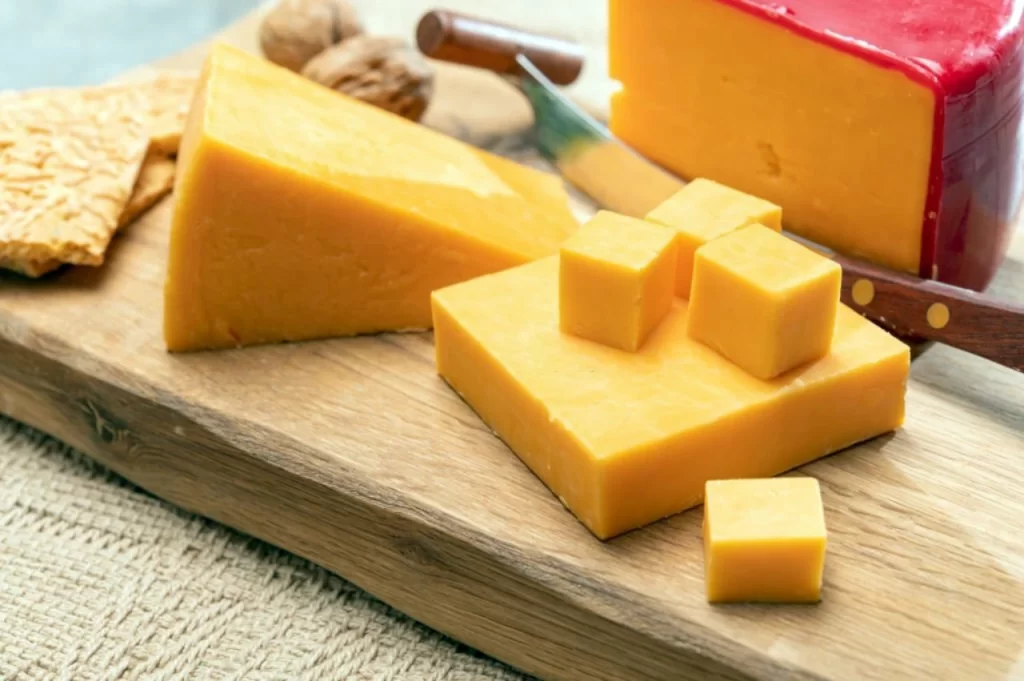
The answer depends on the type of cheese. Some types of cheese, such as cheddar and Swiss, contain high levels of fat and sodium which can be bad for a hamster’s health.
Hamsters should not be fed any kind of processed or smoked cheese. However, small amounts of low-fat, soft cheeses like cottage cheese are safe for hamsters.
It is important to only give them a tiny amount when feeding them cheese since it is still very high in fat and salt content.
A safer alternative would be to feed your hamster vegetables such as apples, carrots, or celery instead of cheese. These offer plenty of nutrition without putting the hamster’s health at risk.
All in all, while it may seem tempting to share a piece of cheese with your hamster, it is best to avoid it altogether.
Can hamsters eat cheese daily?
The short answer is yes, but with caution. Cheese can provide a good source of calcium and protein for hamsters but it should be given in moderation as part of a balanced diet. Too much cheese can lead to weight gain, dental problems, and an upset stomach.
Hamsters should never be fed cheese as their only food; instead given small amounts of cheese mixed in with fresh vegetables, whole grains, and other high-quality proteins such as cooked egg or lean meats.
Variety is important to ensure that your pet’s nutritional needs are met. When feeding cheese to your hamster, offer only small pieces so they don’t become overweight or uncomfortable from overeating.
Choose low-fat cheeses whenever possible and stick with plain varieties rather than flavored cheeses to avoid introducing too much sugar into your hamster’s diet. Cheese can be a tasty treat for hamsters but only offer it occasionally and in limited quantities.
Is Cheese a good diet For hamsters?
Hamsters love eating cheese, but it’s important to remember that cheese should only be fed as an occasional treat and not as a daily staple of their diet.
Cheese is high in fat, salt, and sugar which can cause health issues if consumed too often. Hamsters also need a balanced diet of proteins, carbohydrates, and vitamins to stay healthy.
If you choose to feed your hamster cheese regularly or in large amounts then you should look for low-fat varieties such as cottage cheese or ricotta cheese.
These will provide fewer calories than other types of cheeses while still providing the same delicious taste that your hamster loves.
Make sure to introduce new foods slowly so that your hamster can adjust to them without any adverse reactions.
Lastly, always provide plenty of fresh water so that your hamster can stay hydrated while enjoying its favorite treats!
How To feed cheese to hamsters?
Cheese can be a nutritious and delicious snack for hamsters, but it’s important to feed your pet only small amounts at a time.
When feeding cheese to your pet, make sure that you give them pieces that are no larger than their heads.
Cheese should also be given in moderation as part of a balanced diet; too much cheese can cause digestive issues and other health problems in hamsters.
When offering cheese to your pet, it’s best to provide low-fat varieties such as cottage or ricotta cheese. Processed cheeses contain preservatives and additives which could potentially harm your pet.
Additionally, it’s best to avoid feeding your hamster any dairy products that contain mold or bacteria as these can be very hazardous to their health.
Finally, never give your hamster cheese that’s past its expiration date as this can make them ill. By following these simple guidelines you can safely and enjoyably feed cheese to your hamster.
What type of cheese can a hamster eat?
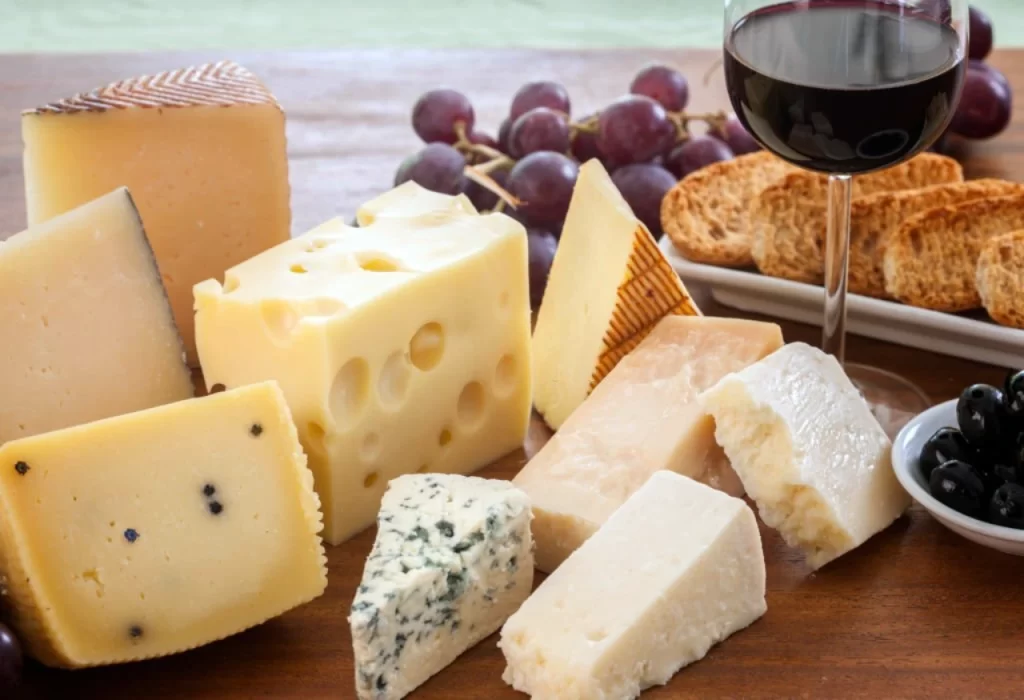
Most hamsters can eat cheese in small amounts, but it should not be a staple part of their diet. Hard cheeses such as cheddar or swiss are best for hamsters and should be cut into very small pieces to avoid choking.
Soft cheeses such as brie or cream cheese should be avoided altogether due to their high-fat content which can cause digestive problems.
Additionally, feeding your hamster too much cheese may lead to weight gain and other health issues down the line.
All in all, cheese should only be given in moderation and used as an occasional treat rather than a daily snack.
It is also important to make sure that the cheese you are giving your hamster is free of potential toxins like mold, bacteria, and preservatives.
Always inspect the cheese before feeding it to your hamster and discard any that appears spoiled or suspicious.
You should always wash your hands with soap and water after handling cheese to avoid accidentally transferring harmful substances from the cheese onto your pet.
How much to feed cheese to hamsters?
When feeding your hamster cheese, it is important to stick to a small serving. Cheese should only make up 10-15% of their daily food intake and should be served in moderation.
A good guideline is to offer no more than one teaspoon of cheese per day for an adult hamster. You can also choose to give them two small pieces of cheese a couple of times per week as an occasional treat.
Be sure to avoid processed cheeses like string cheese, nacho cheese, and other artificial varieties; instead, opt for natural cheeses such as cheddar or Swiss.
Keep in mind that cheese is high in fat and calories so it’s best not to overdo it with treats like this. Your hamster will love the occasional cheesy snack, but moderation is key when it comes to their diet.
If you suspect that your hamster has overeaten cheese and is showing signs of distress or discomfort, consult with a veterinarian for further advice as soon as possible.
Also Read: Can Hamsters Eat Strawberries? A Strawberry Feeding Guide For Your Hamster!!!
Is cheese harmful to hamsters?
Cheese can be a delicious and nutritious snack for hamsters, but it should not be given to them every day.
Cheese is high in fat, sodium, and cholesterol which can cause digestive upset and unhealthy weight gain if fed too often.
Hamsters enjoy cheese as an occasional treat, but it’s important to offer other types of healthy snacks such as vegetables, fruits, nuts, seeds, and grains.
To ensure your hamster remains healthy, feed only small amounts of cheese no more than once or twice a week. Also, make sure to choose low-fat varieties that are free from artificial flavors and preservatives.
Do hamsters like cheese?
While some will nibble on it, cheese should not be a regular part of your hamster’s diet as it is high in fat and sodium content.
In small amounts, cheese can be an occasional treat for your pet hamster, but they should not eat cheese daily.
Cheese may contain too much lactose, which could lead to gastrointestinal issues such as diarrhea or vomiting in hamsters.
Additionally, because of the high-fat content in cheese, eating too much can cause obesity and other health problems. The best thing you can do is provide your furry friend with a variety of nutritious treats like fresh vegetables and fruits instead.
Hamsters enjoy crunchy treats like carrots, apples, and broccoli so these are great options that won’t harm their health if given in moderation.
Always keep an eye on your pet’s dietary intake and behavior to ensure they stay healthy and happy!
Can dwarf hamsters eat cheese?
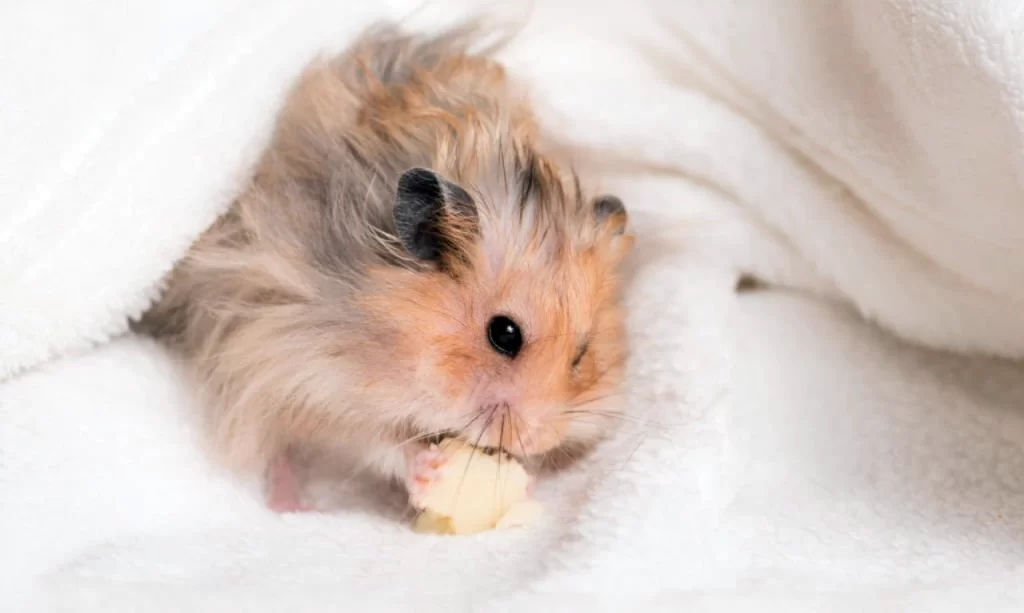
Yes, they can eat cheese in small amounts. Cheese should not be given as a daily snack because it is very high in fat and calcium, which can lead to health problems if eaten too often.
However, small bits of cheese (in moderation) are a good occasional treat for dwarf hamsters. When choosing cheese to give your hamster, opt for low-fat varieties with little or no salt added. Low-sodium cheddar and Swiss cheeses are good choices.
Giving your dwarf hamster too much cheese could result in obesity and other medical issues, so always follow the recommended amount when feeding him any form of cheese.
Additionally, it’s important to note that soft cheeses like cream cheese may contain bacteria that can be harmful to hamsters, so it’s best to avoid giving those types of cheese altogether.
Also Read: Can Hamsters Eat Lettuce?
Alternatives of cheese for hamsters
There are also some alternatives available. These include high-quality commercial hamster treats that are made with real fruit, vegetables, and grains.
Some of these products may contain trace amounts of cheese in the ingredients list, but it is not a primary ingredient and would not provide enough calcium or fat for regular feeding to a hamster.
Other alternatives to cheese include small pieces of boiled egg, yogurt drops (plain yogurt without added sugar), and cooked meats such as lean beef or chicken.
All of these alternate foods should be fed sparingly and only as an occasional treat for your hamster.
They should never make up more than 10% of their total daily diet. Additionally, it is important to note that some foods can be dangerous for hamsters if overfed or given in large quantities. Examples of these include sugary treats, dried fruit, and raw meats.
Frequently Asked Questions (FAQs)?
Can hamsters eat cheese falvored snacks?
Hamsters can have cheese-flavored snacks, but it is important to remember that cheese should not form part of their daily diet.
Cheese contains a lot of fat and salt, both of which can be harmful to hamsters if eaten in excess. Treats such as specially formulated hamster snacks or small pieces of fruits and vegetables are much better options for your pet’s daily nutrition needs.
However, an occasional small piece of cheese isn’t likely to hurt them. Make sure the pieces are cut into small, bite-sized chunks so your hamster does not choke on them or become too full from eating too much at once.
Can hamsters eat cheese puffs?
Cheese puffs are not recommended for hamsters. Hamsters can eat a small portion of cheese in moderation as part of their diet, but they should not have too much.
Cheese is high in fat and sodium, which can be unhealthy for your pet if consumed in large quantities.
The same goes for cheese puffs which often contain more fat and sodium than regular cheese. To keep your hamster healthy, offer it small portions of low-fat and low-sodium cheese as a treat occasionally.
Can hamsters eat cheese chews?
Yes, they can. However, it’s important to remember that cheese is high in fat and salt and should be fed to hamsters in moderation.
Cheese chews are a great way to give your pet a small treat while still monitoring the amount he or she consumes.
Also, as with all snacks you feed your pet, make sure it is free of additives, artificial colors, and flavors.
Remember, a little bit of cheese goes a long way! So offer your hamster only small pieces at a time and provide plenty of fresh water. That way, you can ensure that your pet stays healthy and happy.
Final Thoughts:
Yes, small amounts of cheese can be a healthy treat for hamsters in moderation. However, too much cheese can cause digestive problems and nutritional imbalances, so it should never be the main part of their diet.
Cheese should only make up 10-15% of a hamster’s daily caloric intake and should not exceed one teaspoon (5 grams) per day. It is important to always provide fresh water for your hamster when offering cheese as an occasional treat.
Additionally, it is best to offer high-quality cheeses that are low in saturated fat and sodium content. Avoid processed or pre-packaged cheeses as these may contain additives that could make your pet sick.

